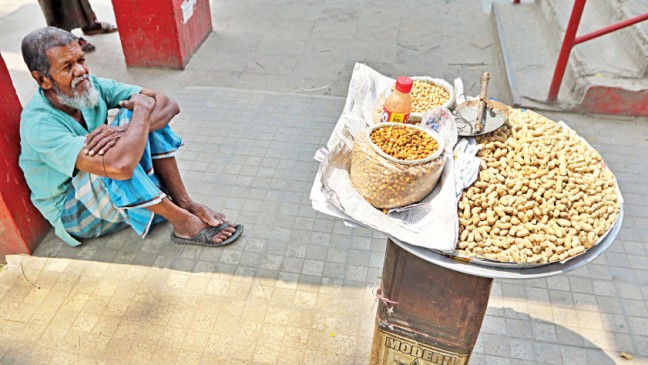The upcoming budget should take a wide range of fiscal measures to lift the new poor out of poverty as they have been languishing in financial plight since the pandemic hit the country more than a year ago because of inadequate support from the government, experts said.
The government unveiled a host of stimulus packages to help the poor and the unemployed absorb the economic shock. Of the schemes, there were 12 packages involving Tk 24,973 crore for the groups.
But the measures did not translate into reality due to inefficiency and a lack of an area-based approach.
The government spent 32 per cent of the amount as of March, according to a progress report of the Prime Minister's Office.
The schemes could not reach many real beneficiaries like the informal sector workers and the urban poor because of an absence of a comprehensive database of the targeted beneficiaries.
The pandemic pushed 2.45 crore people, or 14.75 per cent of the population, into poverty in one year, according to a recent survey of the Power and Participation Research Centre (PPRC) and the Brac Institute of Governance and Development (BIGD).
The livelihood of the workers in the informal sector would not have worsened after the second wave if the schemes had been implemented speedily, said experts and stakeholders.
Aktarujjaman Khan, president of the Bangladesh Hotel Restaurant Sweetmeat Bakery Workers Union, said that people working in the sector had hardly received any government support throughout the pandemic.
"Many workers are struggling to manage basic foods. Hunger has become a regular feature of our life."
If the government does not take any special measure for the workers in the informal sector, their livelihood will deteriorate, Khan said.
"Our savings have been depleted. We want to survive."
In Bangladesh, there are around 10 lakh street vendors who have been hit hard financially by the pandemic.
The union demanded the government provide Tk 10,000 per month to every unemployed worker a number of times a year to help them make a living.
"But the authority has not paid any heed to the demand," Khan said.
Selim Raihan, executive director of the South Asian Network on Economic Modeling, a think-tank, said that the allocation for social safety net programmes should be doubled in the next budget.
The government has provided Tk 2,500 in cash assistance to the same families that had received the aid last year. Around 35 lakh families got Tk 2,500 each under a Tk 1,258-crore stimulus package last year. This time, about 35 lakh families received the support.
"The number of beneficiaries and the amount of the fund are not adequate given the depth of the crisis facing the poor," Raihan said.
About 50 lakh to 70 lakh families need cash assistance of Tk 5,000 for at least three consecutive months, he said.
A four-member household requires at least Tk 6,000 per month to make a living in an urban area as per the Household Income and Expenditure Survey of the Bangladesh Bureau of Statistics (BBS) in 2016.
"Proper selection and distribution are vital," Raihan said, adding that the disbursement of the social safety net programmes was far from the target.
The government had targeted to take the cash assistance to 50 lakh families, whose breadwinners lost jobs because of the pandemic. The number of beneficiaries was later whittled down to 35 lakh because of anomalies.
The new poor have not included in any list of the safety net programmes.
"But the economic recovery will never be achieved without a social recovery," said Raihan, who teaches economics at the University of Dhaka.
The pandemic created deep uncertainty about students, particularly in the rural areas, about whether they would be able to return to schools, a situation that warrants initiatives engaging schools to avoid potential drop-outs.
Many families don't afford to arrange online education for their children as distance learning tools such as internet and smart devices are expensive. Prof Raihan called for an urgent assessment to find out the fund that will be required for the students.
"The government should provide low-cost internet and devices in collaboration with mobile phone operators and other entities. There should be an allocation in the budget, and the stipend amount for the students should be increased."
Imran Matin, executive director of the BIGD, said a good number of small and medium enterprises had faced the fallout of the pandemic due to the business slowdown. Many workers employed in the sector had lost jobs.
"The stimulus packages of the central bank have failed to give a much-needed boost to SMEs."
The stimulus package of Tk 20,000 crore dedicated for the SME sector has not encourage














